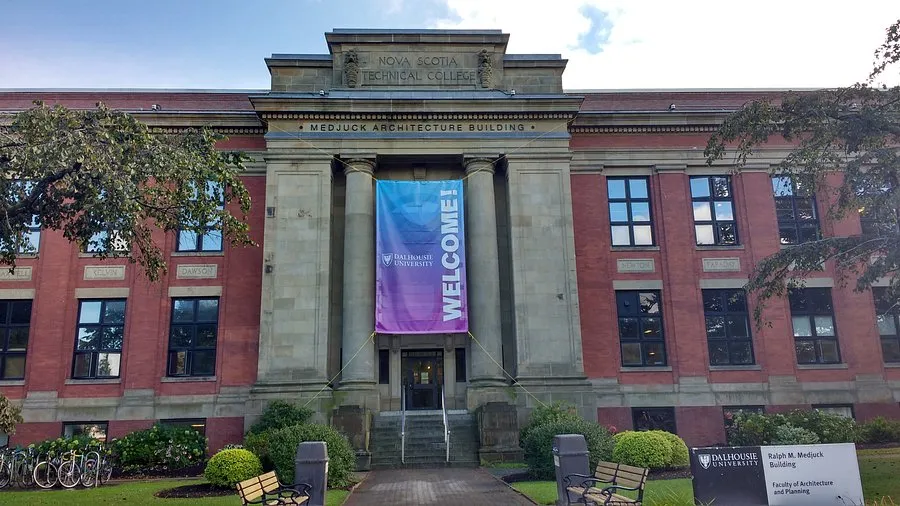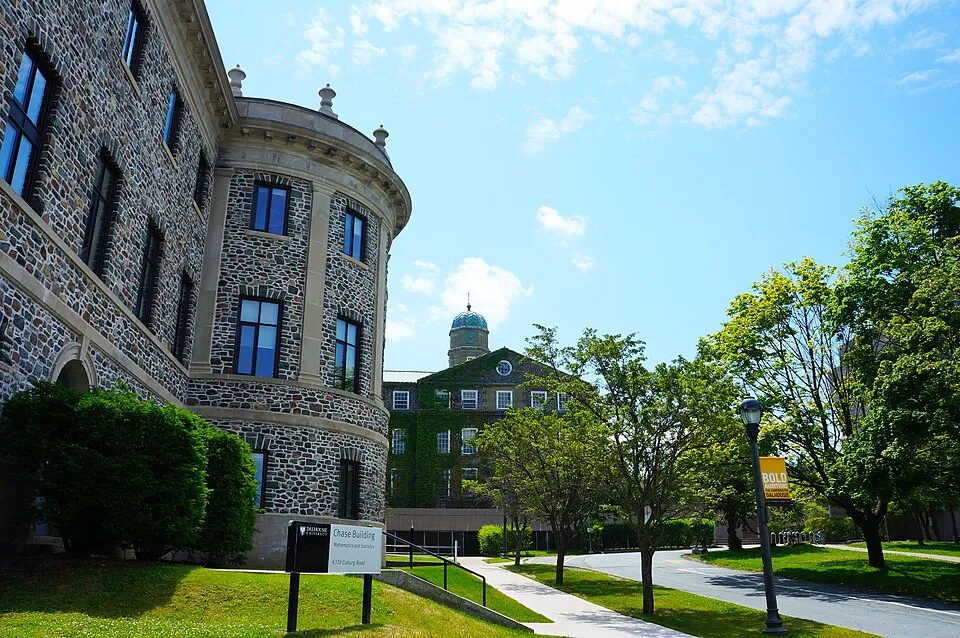
MBA in MBA (Corporate Residency)
Dalhousie University (Canada) · 6299 South St, Halifax, NS B3H 4R2, Canada
About

#275
QS

#352
USNews

#301-350
THE
Dalhousie University (commonly known as Dal) is a public research university in Nova Scotia, Canada, with three campuses in Halifax, a fourth in Bible Hill, and medical teaching facilities in Saint John, New Brunswick. Dalhousie offers more than 4,000 courses, and 180 degree programs in twelve undergraduate, graduate, and professional faculties.The university is a member of the U15, a group of research-intensive universities in Canada.
Dalhousie was established as a nonsectarian college in 1818 by the eponymous Lieutenant Governor of Nova Scotia, George Ramsay, 9th Earl of Dalhousie. The college did not hold its first class until 1838, until then operating sporadically due to financial difficulties. It reopened for a third time in 1863 following a reorganization that brought a change of name to "The Governors of Dalhousie College and University". The university formally changed its name to "Dalhousie University" in 1997 through the same provincial legislation that merged the institution with the Technical University of Nova Scotia.
Program Details:
Program WebsiteBasic Info
Institute
Faculty of Management
Degree
MBA
Duration
2 years
STEM Designated
Yes
Program
MBA (Corporate Residency)
Expense
Living Expenses
CAD 33000
Tuition Fee (Domestic)
CAD 31500
Tuition Fee (International)
CAD 50800
Eligibility
Minimum/ Avg Score
IELTS
7.5
TOEFL
102
Undergrad GPA
3
Ready to apply? Secure your spot at your dream university with our expert help!
Deadlines:
Deadline WebsiteIntake Deadline 1
Stay on track with your applications. Login Now to Unlock all program related information.
Document Required:
Stay on track with your applications. Login Now to Unlock all program related information.









